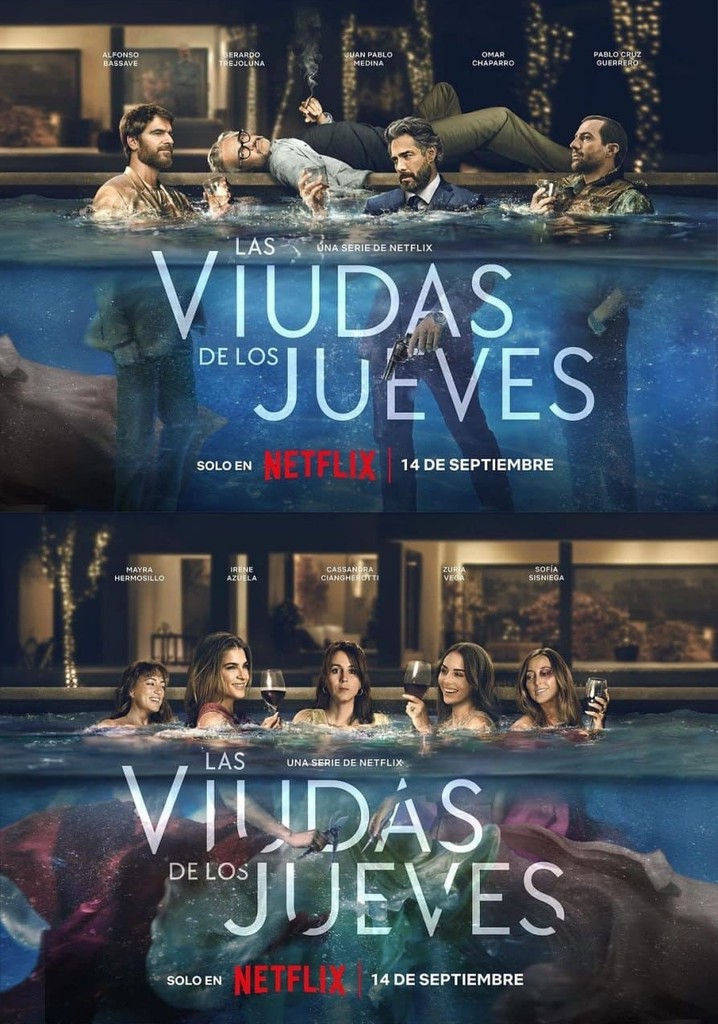Paradise is about to explode.
Altos de la Cascada is a high class residential area in the province of Buenos Aires, where rich families live and where everyone is ready to do whatever it takes to maintain a life based on money and appearances.
A group of friends gets together weekly, far from the gazes of their children, their house keepers and their wives, who, excluded from their male meeting, call themselves “the widows of Thursdays”.
They live an idyllic life with big gardens and heated pools until one morning a woman finds her husband and his two friends dead, floating in the pool.
The event shocks the whole community of neighbours, which is quickly defined as an accident. But the investigation on the last activities of the victims and the testimonies of some of the neighbours generate doubts about the accidental nature of the deaths.
It seems like routine is broken down in Altos de la Cascada, and the events will show that nothing is as perfect as it seems, or as people want to pretend it is.
RELEVANT INFORMATION: The work has received excellent critiques. “Implacable analysis of a social microcosm in an accelerated process of decline.” (José Saramago).
Journalist Rosa Montero said: “A solid and solvent choral work with a sharp social and psychological portrait of the well-off Western world.”
Thursday Night Widows was adapted to film in 2009 by the famous Argentinian director, Marcelo Piñeyro. Numerous media, like El País, the Clarín journal, or La Nación journal praised the good job of the filmmaker, as well as highlighted the power and consistency of Claudia Piñeiro’s work.
Claudia Piñeiro’s novels have been translated into several languages, and some of them have been adapted to film. The author has been awarded with prizes such as the Premio Clarín, the Premio Pléyade, the Premio Latinoamericano de Literatura Infantil y Juvenil, the Premio ACE, the Premio LiBeraturpreis, the Premio Sor Juana Inés de la Cruz and the Premio Pepe Carvalho. She was also a finalist of the Premio Planeta Argentina and the Premio La Sonrisa Vertical, apart from having been selected for the Concurso Editorial Edebé.
AUDIOVISUAL POTENTIAL: TV Series.
AVAILABLE LANGUAGES: English, Spanish, Arabic, Estonian, Romanian, Swedish, Italian, Portuguese, Polish, Dutch, German, French, Serbian, Russian, Spanish, Bulgarian.


